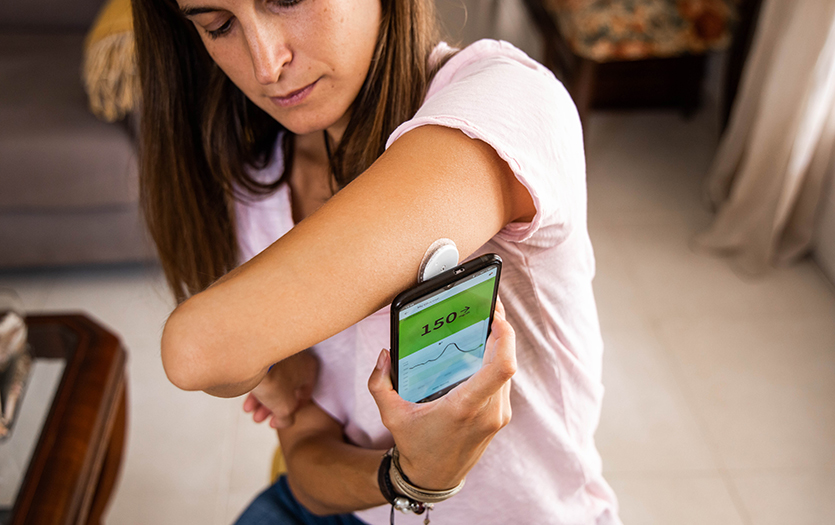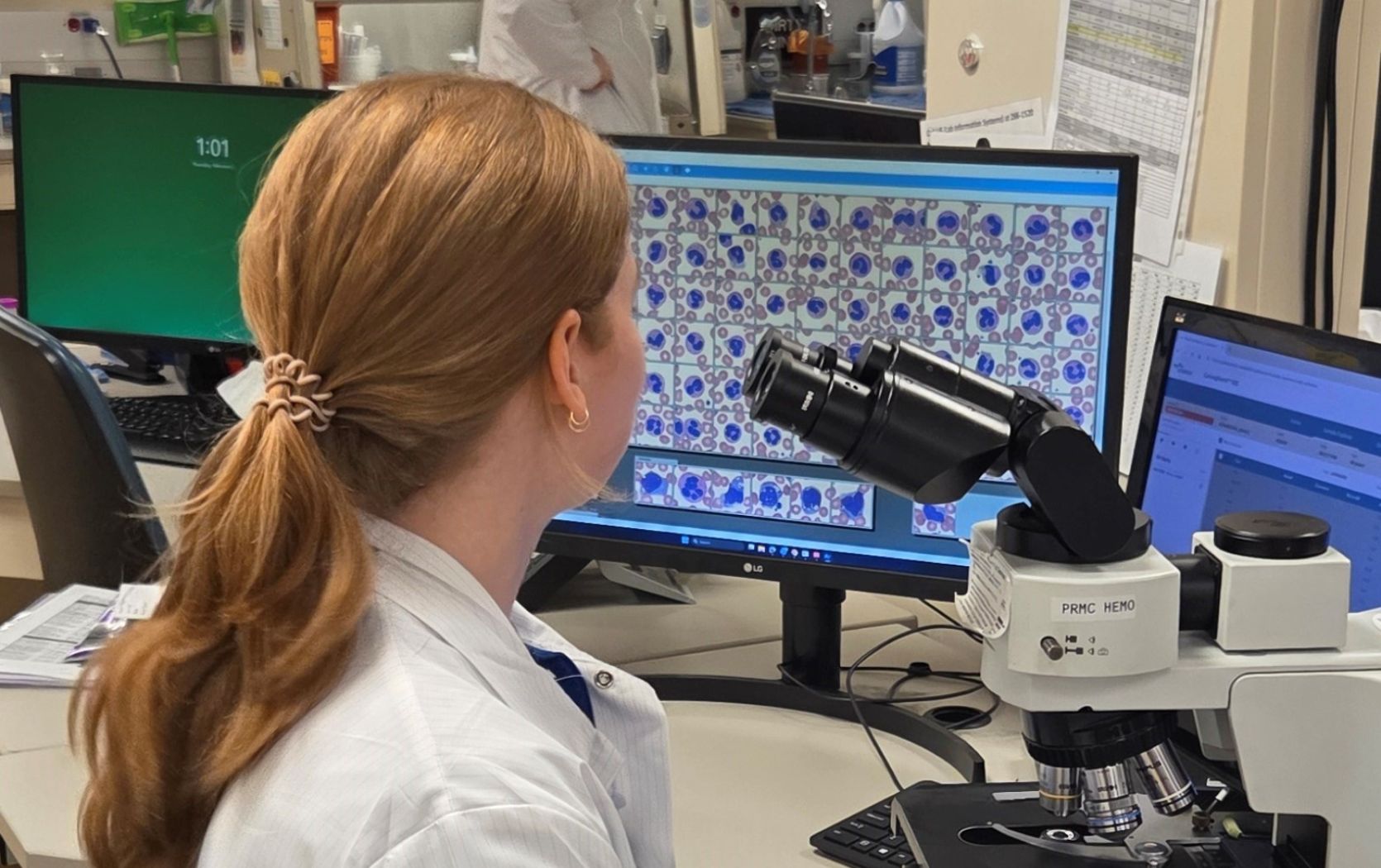
If you’re living with diabetes, you may have shifts in your blood sugar levels from time to time. A cold, the flu, or other sudden illnesses can cause high blood sugar levels. It’s important to learn how to recognize and manage high and low blood sugars so you can avoid levels that can lead to medical emergencies like diabetic ketoacidosis, dehydration or loss of consciousness. Since monitoring blood sugar is a daily activity for those with diabetes, we’re going to break down what high and low blood sugar levels mean and how to care for yourself in each situation.
High blood sugar (hyperglycemia)
High blood sugar occurs when the sugar (glucose) level in your blood rises above your target range. This can happen when you eat too many calories, miss taking medications (insulin or pills), if you have an infection, illness or injury, or if you’ve recently had surgery. Even emotional stress can sometimes cause blood sugar to rise.
High blood sugar usually happens slowly over a period of hours or days. Missing a dose of insulin, however, can cause your blood sugar to rise quickly. If your blood sugar is just above your target range, you may feel tired and thirsty. If it stays higher than your target range for weeks, your body will adjust to that new level, and you may not notice as many symptoms of high blood sugar.
Complications of high blood sugar can cause serious problems, including coma and death. Over time, high blood sugar can damage your eyes, heart, kidneys, blood vessels and nerves.
Typically, you will have time to treat high blood sugar so that you can prevent emergencies. Ways to prevent high blood sugar problems include:
- Test your blood sugar often. It’s important to test frequently, especially if you are sick or off from your typical routine.
- If levels are often high, call your doctor. If your blood sugar is consistently above your target range, you might need your medicine adjusted or changed.
- Stay hydrated. If your blood sugar levels are high, drink extra water or noncaffeinated, non-sugared drinks. When blood sugar levels rise, the kidneys increase the amount of urine that is produced, which can lead to dehydration.
Low blood sugar (hypoglycemia)
Low blood sugar happens when the sugar (glucose) level in your blood drops below your body’s needs. Blood sugar can drop quickly if you don’t eat enough food or skip a meal entirely. It can also drop if you take too much medicine (insulin or pills), exercise more than usual, or take a medication that lowers blood sugar.
It’s important to keep an eye out for low blood sugars. Do not drink alcohol if you have problems noticing the early signs of low blood sugar. If you have recently lost weight or developed kidney problems, you may not need as much insulin or other medicines as before, which can cause your blood sugar to drop. If your body is going through changes, be sure to check your blood sugar levels often.
When your blood sugar level drops below 70 milligrams per deciliter (mg/dL), you will usually have symptoms of low blood sugar. This can happen quickly, in 10 to 15 minutes. The symptoms and stages of low blood sugar are:
- Slightly below your target range symptoms include feeling tired, anxious, weak, shaky or sweaty and possibly an elevated heart rate. Eating something containing sugar can help these symptoms pass.
- If your blood sugar drops lower, your behavior might change, and you may feel grouchy. You may become too weak or confused to eat sugar to raise your blood sugar level.
- When blood sugar drops severely low, you may lose consciousness or have a seizure. If you have symptoms of severe low blood sugar, you need medical care immediately.
Some people with diabetes don’t notice the symptoms of mild low blood sugar. This is called hypoglycemia unawareness. This happens more to those whose blood sugar is well controlled and doesn’t change much throughout the day. If your doctor thinks you have low blood sugar levels, but you aren't having symptoms, they may ask you to check your blood sugar more often, including throughout the night. They may also recommend a 3-day test with a continuous glucose monitor.
Managing your blood sugar
You can help avoid blood sugar problems by following your doctor’s instructions regarding the use of insulin and diabetes medicines as well as diet and exercise. Home blood sugar testing will also help you keep tabs on your blood sugar levels so you can stay within your target range. The best advice is to follow your treatment plan and test your blood sugar regularly.
If your blood sugar level reads too high or too low but you feel fine, you may want to recheck your sugar level or recalibrate your blood glucose meter. The problem may be with either your blood sample or the machine.
Helping children and teens manage blood sugar
Children with diabetes will need their parents’ help to keep their blood sugar levels in a target range and to exercise safely. Help your child learn the symptoms of both high and low blood sugar so they can tell others when they need help. There are many support groups and diabetes education centers to help parents and children understand managing blood sugar, medications, diet and exercise.
Having diabetes in your teenage years isn’t easy. Teens may have an especially hard time keeping their blood sugar levels under control as their bodies are rapidly growing and developing. However, this is an excellent time to help your teen better understand diabetes and its treatment and have them take over some of the duties of their care.
At Parkview, you have access to health professionals who are dedicated to helping you manage various aspects of self-care. The Diabetes Services team or your primary care physician can help you connect with a dietitian or pharmacist specializing in diabetes management. If you need help finding the right provider for you, call our Access Center at 877-PPG-TODAY or 877-774-8632 for assistance.
A partnership for better health
Purchasing the medical and wellness products you need to enhance your health journey is now easier than ever. Parkview and Best Buy have teamed up to provide you with a specially curated selection of products that are recommended by the Parkview healthcare providers you trust. It’s a partnership built on helping you simply and conveniently achieve your health goals. You can view products to assist with Diabetes Management here.
Note: This website is regularly updated as new products become available. Prices will also be updated to reflect any sales or special offers from Best Buy.
Copyrighted material adapted with permission from Healthwise, Incorporated. This information does not replace the advice of a doctor.




